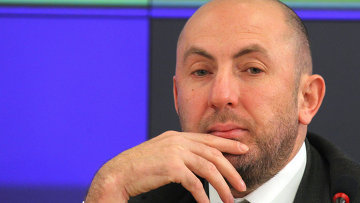MOSCOW, September 22 (RAPSI) – The Commercial Court of North-West District has set November 7 as the date for considering an appeal lodged by ex-CEO of JFC Group Vladimir Kekhman against a lower court’s refusal to recognize his bankruptcy, declared by the High Court of London, valid in Russia, according to court records.
On August 3, the St. Petersburg Commercial Court ruled that Kekhman had not provided sufficient evidence of the London court’s ruling coming into force in accordance with the Commercial Procedure Code of the Russian Federation. In addition there is no evidence of London court recognizing rulings of Russian courts declaring Kekhman bankrupt on territory of Russia.
The St. Petersburg Commercial Court ruled that in the absence of international treaties signed by Russia decisions of foreign courts on bankruptcy cases are recognized in Russia on the basis of reciprocity, unless otherwise provided by federal law. Currently, Russia is not a party to international treaties on insolvency matters.
On September 6, Kekhman filed an appeal against a ruling of the St. Petersburg Commercial Court declaring him bankrupt.
Kekhman was declared bankrupt by court upon the application of Sberbank on July 28.
Moreover, on July 21, a court in St. Petersburg dismissed a petition lodged Kekhman seeking the recognition of London’s High Court’s judgment declaring him bankrupt. Kekhman’s financial executive Mikhail Bologov, Russia’s Federal Tax Service, Sberbank, Rosbank, Promsvyazbank, Raiffeisenbank, UniCredit Bank, Aquamarine Company and Pulkovo Trade Company are named as interested parties in the dispute.
A Kekhman’s representative claimed during the bankruptcy hearings that the former head of JFC had no obligations before Sberbank because he was already been declared bankrupt by The High Court of Justice of England in 2012 and Sberbank received its share from sales of Kekhman’s property. A Sberbank’s representative, on the other hand, claimed that the bank was not involved in the process and did not receive any compensation. According to the Sberbank’s representative, the bank had rulings of several Russian courts on debt recovery from Kekhman.
Nevertheless, the representative of Kekhman insisted that the ruling of The High Court of Justice of England had been recognized by Sberbank and was to be complied with in Russia.
In its ruling, the court pointed out that in the absence of international treaties, entered into by the Russian Federation, decisions on bankruptcies taken in foreign jurisdictions were to be recognized in Russia only on the reciprocity basis unless otherwise stipulated by federal laws. At present, the court stressed, the Russian Federation was not a party in any international treaty on bankruptcy issues.



